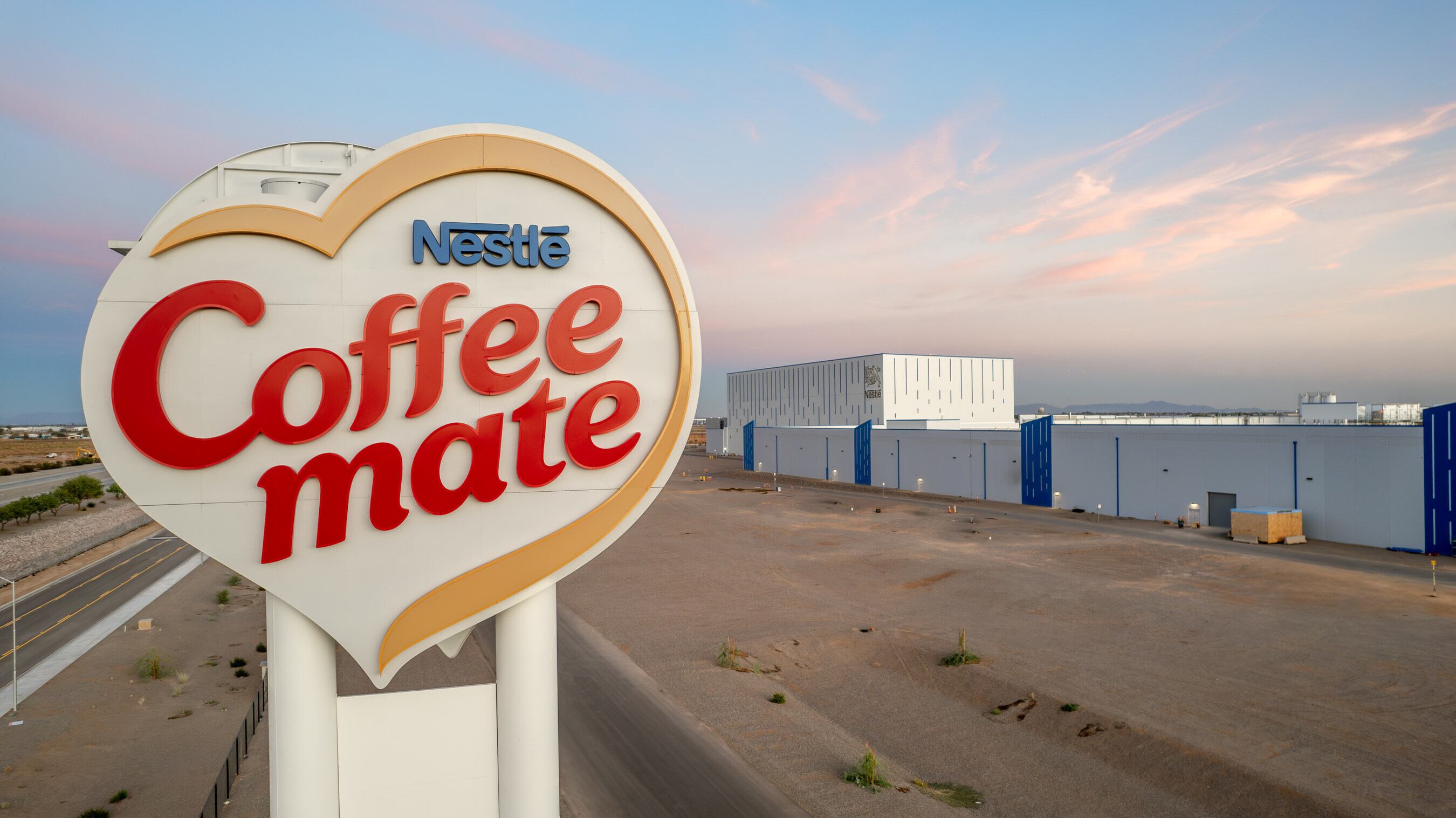Milk products and ice cream delivered 0.8% organic growth driven by RIG (0.7%) and price (0.1%). Sales amounted to CHF 2.5bn, around 11% of the group’s total (CHF 22.6bn).
Dairy reported mid single-digit growth, supported by a lower prior year base of comparison.
In milk products and ice cream, growth in ambient dairy was offset by weakness in coffee creamers.
Creamers underperformed in Zone Americas, where Nestlé has grappled with capacity constraints, meaning it has been unable to meet demand from retailers and consumers due to limited supply.
In Q1 2025, a sales decrease in Coffee Mate was offset by growth in Nescafé products, driving an overall mid single-digit growth in beverages in the Americas.
But there have been signs of improving market share developments in Zone Americas according to the company, which recently opened a new coffee creamer production plant and distribution center in Glendale, Arizona.
The facility, which has been operational since January 2025 and produces creamers for brands Coffee Mate, Natural Bliss and Starbucks, forms part of a $3bn+ multi-year drive to bolster the company’s manufacturing capabilities across the US.
Through 2025, Nestlé’s coffee creamer performance in the Americas should begin to improve, according to the group’s CFO, Anna Mans.
She told investors that Nestlé was making ‘good progress on getting our distribution back’ and had already made ‘big strides’ in addressing supply issues.
“We’ve reclaimed some competitive distribution, so you would expect to see our share performance starting to improve,” Mans said.
In Q1 2025, Nestlé SA achieved positive organic growth of 2.8% driven by price (2.1%) and RIG (0.7%). Coffee and confectionery led growth for the CPG major, mostly through price increases. More on this from FoodNavigator Europe.
Nestlé CEO Laurent Freixe added: “We just have the capacity now to also compete in the marketplace.
“You will see impact in terms of better supply, better presence on shelf, and there will be competitive in all dimensions, bearing in mind that this is a category also that we lead from a market share standpoint.”
Infant nutrition: China rebounding?
Infant nutrition – one of several underperforming categories identified by the group’s leadership – recorded negative growth this quarter due to continued sales declines of baby food brand Gerber and powdered milk brand Nido.
But China’s improved birth rates in 2024 have given the company hope of a rebound in demand for infant and childhood nutrition products.
Asked if the segment’s performance in Q1 2025 was due to soft category trends – such as lower global birth rates – Nestlé CFO Anna Mans said: “The category overall is low-growth because of low birth rates.
“Overall, we’re gaining share in infant nutrition. What’s holding us back a bit...is baby food. And that is most marked in North America, where Gerber is a bigger proportion of the sales. The work to do is on baby food and we’re focused on that.”
Nestlé CEO Laurent Freixe hinted at potential growth in China thanks to the country’s improving birth rates.
“On nutrition, I mean, [it] is what it is. There is the positive of when it comes to China, of the boost of the Year of the Dragon, with more babies. So that will support the growth in the coming couple of years.
“The US is different in this respect, and we have one specific issue to address (...) which is Gerber. So that’s certainly one of our focus areas.
“Going forward, but back to the core message, we see progress in all dimensions of our strategy. We are sharpening this strategy. We are sharpening the execution.”
Gerber is among several companies implicated in a multi-district litigation on toxic baby food in the US currently. Nestlé, Gerber’s parent company, was stricken-off the defendants list after successfully arguing it had no part in the health and safety processes at the baby food maker.

